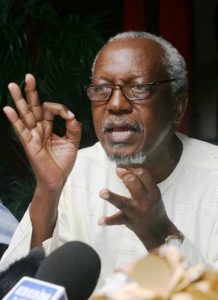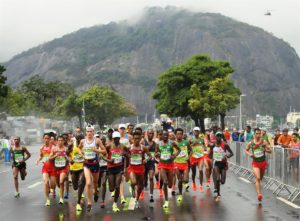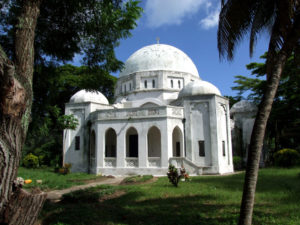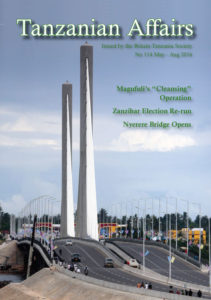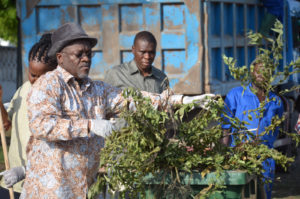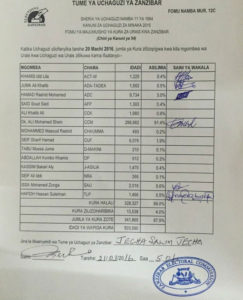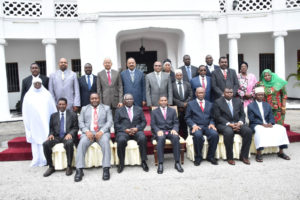by Ben Taylor
Rwanda rail route in development
The government has set aside US$ 460m for the construction of the Dar es Salaam-Isaka-Kigali/Keza-Musongati (DIKKM) project. The standard gauge railway project is planned to be completed by March 2018 and is estimated to cost US$ 5.2 billion.
President Magufuli also announced that the government was to allocate space for an inland container depot (ICD) specifically for Rwandan cargo, to reduce bureaucracy. He explained that 70% of Rwanda’s goods pass through Dar es Salaam port, and assured his Rwandan counterpart that corruption problems at the port had been addressed. The plan involves opening a Tanzania Ports Authority (TPA) office in Rwanda, so that cargo clearance can be done in Kigali.
The president also explained that Tanzania was committed to collaborating with the Burundian government, adding that Burundi had also expressed its willingness to send experts to Tanzania for sharing experiences with a view to strengthening mutual relations. (The Guardian)
New aircraft for Air Tanzania
President Magufuli has announced that his government will purchase new aircraft for the struggling national airline, Air Tanzania. Two Bombardier D8 Q400 planes are to be purchased to operate both domestic and regional routes, said the President.
Deputy Minister of Transport, Dr Charles Tizeba, told parliament in Dodoma that the government would put down US$ 3.34m as initial payment for purchase of the two airplanes, and that the market price of each of the aircraft was US$35m. He added that the balance of the sale price would be obtained from the planes’ operations and would be fully paid in a period of 10 years. (The Guardian)
BRT mass transit buses begin operations
The long awaited Dar es Salaam Bus Rapid Transit (BRT) buses began operations in the city in May 2016, with 105 buses operating along dedicated lanes along Morogoro Road and various connecting routes. Prices are set at TSh 200 for students and between Tsh 400 and TSh 800 for regular-price passengers.
The World Bank-financed project is designed to provide relief to 300,000 daily commuters, at a cost of $290m. Official estimates showed that traffic congestion has been costing the nation over TSh 400bn annually in lost working hours and extra fuel consumption.
The service’s first days of operation saw huge demand, resulting in long queues for ticket purchases and to board buses. However, as operators and passengers alike have become familiar with how the system works, the severity of these challenges has reduced. In particular, adoption of an electronic-ticketing system – several weeks after the launch of the buses – has reportedly reduced both confusion and waiting times considerably.
A second set of challenges emerged when drivers threatened strike action due to pay and conditions. Many claimed that they had not been issued contracts, or that the contract terms were not consistent with those previously announced. Much of the confusion appeared to relate to a series of performance-based bonus payments, depending on drivers’ punctuality and fuel efficiency, among other factors.
Finally, the buses were beset by an unfortunate series of accidents, with 34 of the buses reportedly involved in accidents within the first two weeks of operations. A spokesperson of UDART, the bus company, Deusdedith Bugwaya blamed the accidents on civilian drivers of cars and motorbikes crossing the dedicated bus lanes. The cost of the bus repairs was estimated at TSh 100m (£35,000).
Nevertheless, anecdotal reports suggest that the buses have already overcome these teething troubles and have made a positive impact on traffic congestion in the city. (The Citizen; The Guardian; Daily News).
Drivers’ doubts on Nyerere Bridge
Initial excitement at the official opening of Nyerere Bridge, linking Dar es Salaam city centre with Kigamboni, has been tempered by disappointment at higher-than-expected toll rates for bridge users. While it had previously been reported that the toll would be set at the same rate as the Kigamboni ferry crossing, this proved incorrect.
According to the newly announced toll rates, motor cycles are charged TSh 600, Bajajis and saloon cars TSh 1,500, pick-up vehicles below two tonnes and station wagons TSh 2,000, passenger vehicles TSh 3,000 (maximum 15 seats), TSh 5,000 (maximum 29 seats) and TSh 7,000 (above 29 seats). Cyclists and pedestrians are allowed to cross the bridge free of charge.
Daladala commuter buses’ operators are most upset by the prices, and baulked at having to pay up to TSh 70,000 per day (£25) for multiple crossings. Some such buses are reported to have started dropping passengers on one side of the bridge, forcing them to walk the 680m length of the bridge and find another bus on the other side. An average of 8,000-10,000 vehicles per day are using the bridge, according to Project Manager, Gerald Sondo, and the National Social Security Fund (NSSF) reported takings reached TSh 1bn (£350,000) in the first month of operations.
The bridge, which opened on May 14, 2016, was jointed financed by NSSF and the government, at a total cost of $143m. (The Guardian)
Uber launches in Dar es Salaam
Uber, the taxi service that uses mobile phone technology and which has revolutionised urban travel around the world, launched in Dar es Salaam in June 2016. As is the case in many other countries, Uber charges customers a fare that is a fraction of the price charged by traditional taxi operators.
In Dar es Salaam, Uber advertises a fare of TSh 13,000 (approximately £4.50) for a journey between the airport and the city centre, less than a third of the equivalent price (TSh 40-50,000) for a traditional taxi. Furthermore, Uber allows customers to pay either using mobile money (such as m-pesa) or credit card, in addition to payment by cash.
These fares are low even by regional standards. Equivalent prices for similar journeys using the Uber service in Nairobi and Mombasa, where the firm has faced strong resistance from taxi drivers, are around double the cost of Uber fares in Dar es Salaam.
Early days of the service’s operations in Tanzania were marked by uncertainty among Uber drivers, unfamiliar with new operating methods and doubts at the low prices, and fear among other taxi drivers that their prices would be undercut. Reports of Uber drivers requesting top-ups to the official price were widespread, and many customers cited problems with requested drivers not arriving for pick up as agreed.
Nevertheless, Uber has not increased its fares in Dar es Salaam in the two months since its launch. (The Citizen; The Guardian)

